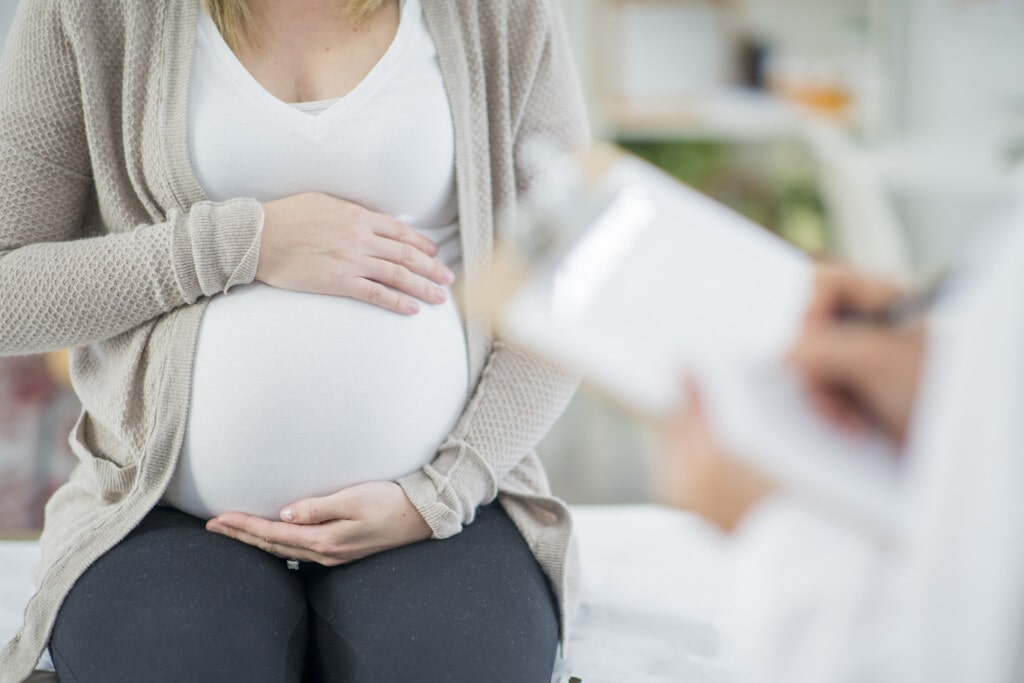Pregnancy comes with its own set of challenges that have expectant mothers on high alert for nine months. But learning you have Group B Streptococcus (GBS) can add another layer of concern and fear. With many questions swirling in your head—What does this mean for my baby and me? What treatments are available? What are the risks?—we’re here to help put the little voice inside you to rest.
We’ve broken down information that can help keep you and your little safe and ease some of your worries. We hope this helps you understand what GBS is, recognize the signs and symptoms, and learn what options are available.
What is GBS?
GBS, also referred to as Group B Streptococcus, is a common bacterial infection affecting both men and women. It usually lives in either the lower part of the digestive system, the urinary tract, or the reproductive tract. In pregnant women, the infection is typically located in the vagina or rectum. On rare occasions, GBS can lead to additional infections throughout the body, such as the blood, bladder, bones, lungs, or skin.
While moms-to-be should not immediately go into panic mode, it is important to note that those with GBS can pass it to their babies before or during birth. The Centers for Disease Control and Prevention (CDC) reports that about 1 in 4,000 babies are affected by GBS if antibiotics are administered to expectant mothers during labor. The number then increases to 1 in 200 if antibiotics are not administered. The bacteria poses a risk to newborns and is the most common cause of serious neonatal infections, including:
- Bacteremia (an infection that enters the bloodstream)
- Meningitis (infection of the membranes and tissue that protect the brain and spinal cord)
- Pneumonia
- Septicemia (blood poisoning)
What are the Signs and Symptoms of GBS?
For most healthy adults, including those who are expecting, the GBS bacteria are harmless and may not result in any symptoms. This is oftentimes why people are unaware they even have the infection.
In newborns, per the CDC, early-onset GBS symptoms occur within the first week of life (<7 days old), and late-onset occurs from the first week through 3 months of life (7-90 days old). Symptoms may include fever, difficulty feeding, irritability or lethargy, difficulty breathing, or blue-ish color skin.
Infants can also experience illness from Group B Strep weeks or months after birth (late-onset) and may have a fever, difficulty feeding, coughing or congestion, drowsiness, or seizures.
What Causes GBS?
GBS naturally lives in the body, whether in the intestines, urinary tract, or genital tract. Healthy adults may also be innate carriers of the bacteria and may have it in their body temporarily, as it can come and go. Others may be lifelong carriers.
The bacteria is not a sexually transmitted disease, so individuals will not catch it from another person and will not become infected by consuming food and water or objects they touch.
According to the CDC, one in four pregnant women are carriers of the GBS bacteria. However, this does not equate to having the infection. Expectant moms will not become ill or experience symptoms. But they can spread GBS to their infant during a vaginal delivery if they’re exposed to (or swallow) fluids that contain the bacteria.
How Is GBS Diagnosed?
All pregnant women who are between 36 and 38 weeks of gestation are tested for Group B Strep. During their routine prenatal visit, a healthcare provider will test for the bacteria by swabbing the inside of the vagina and rectum. The swab is then sent to a lab to examine if the bacteria grows. Results are typically provided within a few days.
Keep in mind that women are tested for GBS every pregnancy, even if they were positive or negative in their prior gestation. The bacteria levels can change with each pregnancy, causing results to differ from one pregnancy to the next.
What Treatment is Available if I Test Positive?
The CDC recommends pregnant women receive antibiotics (penicillin or ampicillin) intravenously during labor to help lower the risk of GBS in newborns for both vaginal and cesarean deliveries. They’ll receive the medicine for at least four hours before delivery to help protect their baby from contracting the bacteria.
Antibiotics cannot be taken before labor as a preventative measure. It’s been shown to be ineffective since the bacteria can grow back quickly. Be sure to let your healthcare provider know of any drug allergies so they can provide an alternative medication.
Are There Any Risks if You Opt-Out of Treatment?
Mothers who decline antibiotics while in labor pose the risk of their newborn contracting Group B Strep during delivery due to exposure to bodily fluids. If an infant is infected, GBS can cause serious symptoms and lead to further detrimental infections.
Newborns who do become ill with GBS may need care in the newborn intensive care unit. They are typically treated with antibiotics through an IV. Additional treatment may be required if they contract another infection, like meningitis, pneumonia, or sepsis, or if the GBS is severe.
If you are GBS positive, don’t feel ashamed! There are treatment options available to you before meeting your new baby. And there are treatment options after exposure if your little one develops GBS. Talk to your healthcare provider about any questions or concerns. Remember that they’re there to guide you in this journey and, ultimately, keep you and your newborn healthy.



































